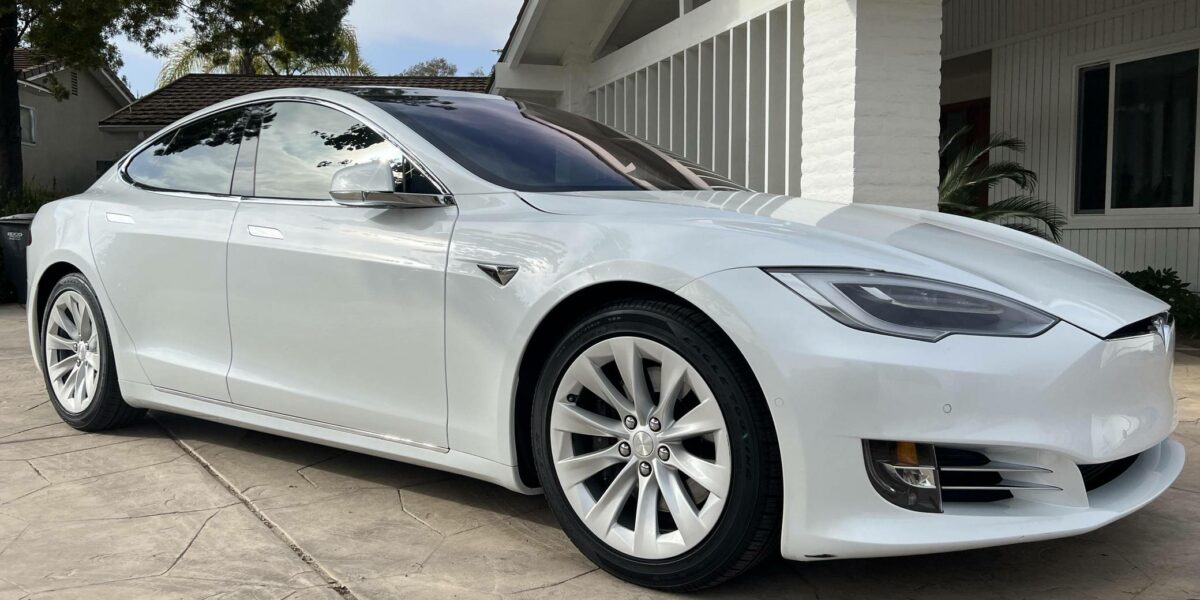Proof of ownership
EV battery life and maintenance costs pass the time test
Questions over the longevity and reliability of electric vehicles (EVs) are beginning to be answered.
As the EV fleet begins to age, and the mileage ticks over, the results show that many of the initial concerns over the new technology may be unfounded.
The highest profile manufacturer, Tesla, now has cars in the UK with hundreds of thousands of miles on the clock.
One has more than 375,000 miles on the clock, according to data analysed by car leasing comparison website LeaseLoco.
Test of time
It’s nine years since the first Teslas – the Model S – went on sale in the UK in the summer of 2014.
Odometer data provided by the DVSA reveals that three Model S Tesla’s have now covered more than 300,000 miles. Nearly 380,000 miles has been racked up by one Model S.
To put it into perspective, the equatorial circumference of Earth is 24,901 miles. This means this Tesla has driven the equivalent of 15 times around the world.
Proofs in the driving
Battery degradation and replacement was often voiced as a significant concern and potential cost for owners.
On a single charge, a Model S battery is advertised as good for 405 miles – assuming no degradation.
Based on this mileage, the owner of the highest mileage Tesla has charged the battery at least 933 times since they purchased it.
Elon Musk tweeted in 2019 that a Tesla battery should last for 300,000 to 500,000 miles.[3]
If that’s true, the three Teslas with more than 300,000 miles on the clock will soon be the first in the UK to need a new battery. However, at present there appears to be no signs of any of them needing a replacement.
“As more Teslas approach and pass the 300k mark in the UK, we’ll find out just how accurate that statement was,” states John Wilmot, CEO of car leasing comparison website LeaseLoco.
“For most electric car owners though, the lifespan of their car batteries is a problem way into the future. In the here and now, the issue of charging EV batteries while on the road is more of a concern.
EV owners aren’t just aren’t just anxious about the range before recharging. New technology brings a cache of worries, from running out of charge in the middle of nowhere, to whether the next charging station is actually working or even available.
“If we are going to see mass switching to EVs in the next five years, which is needed with the petrol and diesel car ban only seven years away, then range and charge anxiety fears have to be allayed.
“Electric car owners need to be reassured that there will be enough charging points to ensure they never run out of battery while on the road, and that charging points are actually working or available to use when they need them.”
Gaining power
DVSA data also shows there are currently 724 Teslas on UK roads with more than 100,000 miles on the clock, and 38 with over 200,000 miles. There were more than 130,000 Tesla owners in the UK at the end of 2022.
As the mileage grows, so do the realities of owning grow into reliable real world examples, from maintenance, running costs and affordability.
Since the introduction of long range EVs by the company, nearly every manufacturer is now following suit. There are plethora of different models on sales, with various ranges. However, the range continues to increase, and models in the next few years, with the evolution of battery technology, mean many more affordable and practical choices available.
All new petrol and diesel powered vehicles are banned in the UK from 2030.
Prolonging battery life
Drive slower
Avoid accelerating unnecessarily and abrupt deceleration to minimise energy consumption that can drain the battery. If possible, try to avoid motorways or other areas that require driving at high speeds.
Avoid rapid charging
Rapid charging could negatively affect the battery as high-voltage DC charging strains it and shortens its lifespan. Try using AC chargers when looking for public chargers.
Avoid extreme temperature
Extreme heat and cold can harm your EV because the battery’s thermal management will cause the battery to drain as the system tries to maintain temperature for optimum efficiency.
Don’t let your battery drain fully
Car batteries like to be kept charged. Letting your battery drain flat can damage its lifespan so try and avoid it falling below 20% power.
Don’t overcharge the battery
Avoid fully charging your car battery as this can overwork it. Experts say it is best to maintain your car battery between 20% and 80%. This will prolong its condition. Don’t leave it charging all night every night, as this will overwork the battery.
Give your battery a break before charging
Let your car battery cool down for a minute if you’ve just stopped driving and want to start charging. Your battery won’t have to work so hard if you do this and it should help prolong its life.





